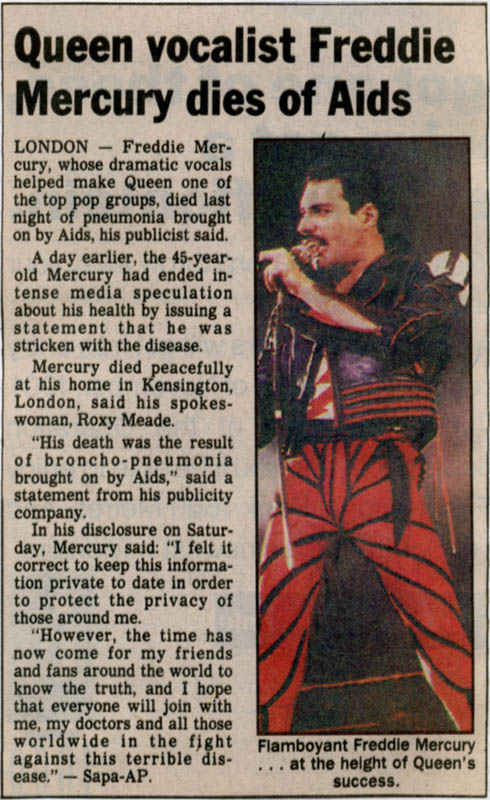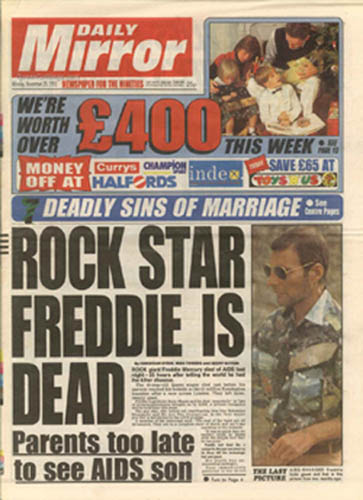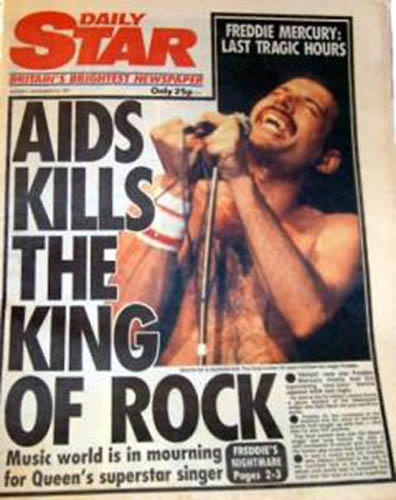A look back on some of the newspaper reports the world woke to on morning of 25 November 1991.
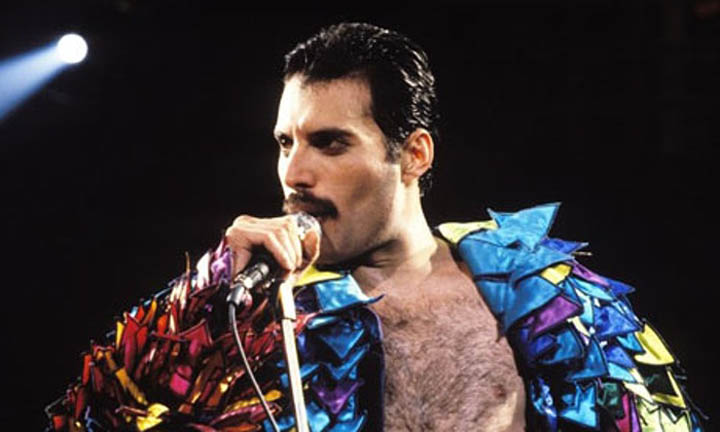
THE GUARDIAN
QUEEN STAR DIES AFTER AIDS STATEMENT
From the archive, 25 November 1991
Originally published in the Guardian on 25 November 1991
Friday 25 November 2011 12.27 GMT by Paul Myers
Freddie Mercury, rock’s showman incarnate, died last night, 24 hours after he confirmed he was suffering from Aids. Mercury, lead singer with the band Queen, had become a recluse at his home in Kensington, west London, over the past two years, fuelling speculation that he was suffering from the disease. He was 45.
A brief statement by his publicist, Roxy Meades, said: “Freddie Mercury died peacefully at his home. His death was the result of bronchio pneumonia, brought on by Aids.”
Mercury was born Frederick Bulsara in Zanzibar, the son of a Government accountant. He attended Ealing College of Art, then joined Brian May, John Deacon and Roger Taylor to form Queen in 1971. Their debut album was Queen in 1973, followed by Queen II a year later, with a single Seven Seas of Rhye, which made the UK charts. The Sheer Heart Attack album gave them a big hit with Killer Queen. But it was A Night At The Opera which furnished them with a number one hit in the seven-minute Bohemian Rhapsody.
Queen’s Greatest Hits remains one of the biggest sellers in rock history. Singles such as We Are The Champions (employed by the Labour Party at its conference this year), and Crazy Little Thing Called Love, plus Mercury’s solo efforts such as The Great Pretender, were all hits. The band played stadium concerts to six figure audiences all over the world, with the theatrical Mercury centre-stage. For nearly 20 years he was one of the most flamboyant figures on the British rock scene. His after-show parties went on for days.
As questions began to be asked about his health, he adopted a more sedate lifestyle, which he insisted was more the real Freddie Mercury. He said: “I’m so powerful on stage that I seem to have created a monster. When I’m performing I’m an extrovert, yet inside I’m a completely different man.”
In an interview with the Daily Express this month, Mercury said: “I don’t really think about when I’m dead or how they are going to remember me. I don’t really think about it. It’s up to them. When I’m dead who cares? I don’t.”
On Saturday, Mercury issued a statement saying, “Following enormous conjecture in the press, I wish to confirm that I have been tested HIV positive and have Aids. I felt it correct to keep this information private to date in order to protect the privacy of those around me. However, the time has now come for my friends and fans around the world to know the truth, and I hope everyone will join with me, my doctors and all those worldwide in the fight against this terrible disease.”
AP – published 25 Nov 1991
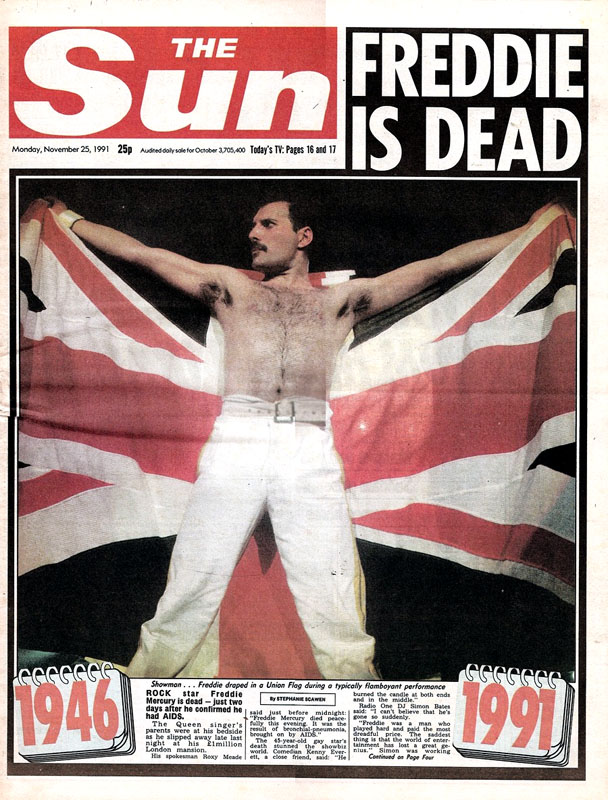 The Sun – click image for larger – TRANSCRIPT
The Sun – click image for larger – TRANSCRIPT
